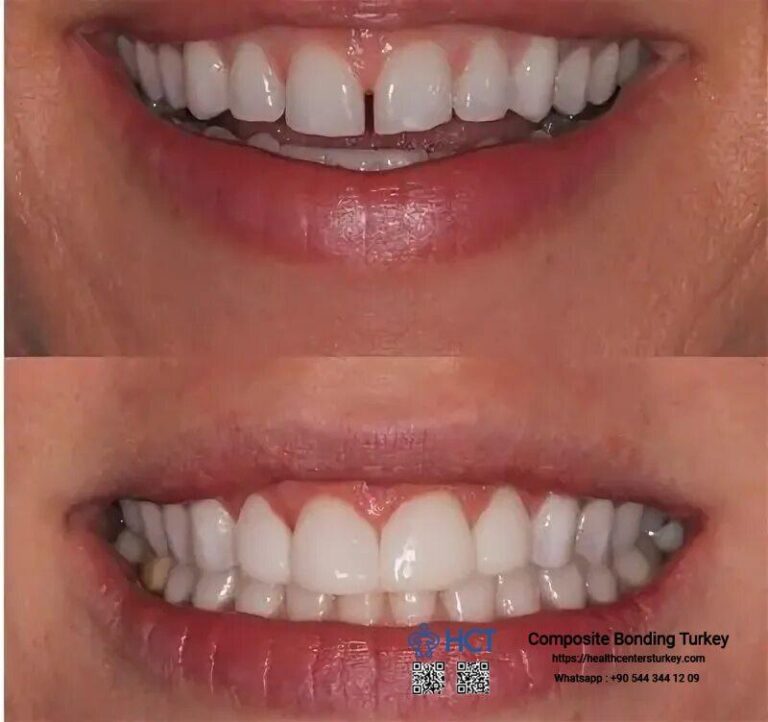Navigate Your Dental Journey in Turkey
Get Budget-Friendly Oral Health Services that Meet Your Needs in Turkey

Dental implants have become a focus in modern dentistry, offering a reliable answer for these dealing with tooth loss. Among the multiple advantages they provide, one significant facet value considering is their influence on adjacent teeth. Understanding how dental implants have an result on surrounding teeth aids in making informed selections about oral health.
When a tooth is misplaced, neighboring teeth can easily shift towards the space left behind. This movement can result in misalignment, which compromises the general bite and performance of the mouth. Dental implants mimic natural tooth roots, thereby maintaining the position of adjacent teeth.
Low-cost Smile Enhancement Options in Turkey
The stability supplied by an implant is crucial, because it helps in preserving not simply the physical alignment but in addition the structural integrity of the jawbone. When a tooth is missing, the underlying bone can begin to deteriorate due to lack of stimulation. An implant exerts strain on the bone throughout chewing, similar to a natural tooth, which promotes bone health.
In some instances, a bridge or partial denture may be thought-about as a substitute for implants. While these choices may restore some functionality, they'll place additional stress on neighboring teeth. Bridges often require submitting down the encircling teeth to accommodate the anchors, thereby affecting their health over time. Dental implants, then again, do not alter present teeth, making them a extra conservative alternative.
Save Big on Cosmetic Procedures in Turkey
Hygiene turns into another crucial issue when contemplating adjacent teeth in the context of implants. With dental implants, the person can preserve an everyday hygiene routine similar to natural teeth. Flossing and brushing around the implant are simple, making certain that the gum tissue stays wholesome and minimizing the risk of gum disease that would adversely affect adjacent teeth.
Moreover, the supplies used in dental implants are biocompatible. This means they are designed to integrate properly with the physique, decreasing the possibilities of an opposed response. This attribute not only makes the implant secure but also protects nearby teeth from potential issues that could arise as a outcome of contamination or infection.
In phrases of aesthetics, dental implants provide a natural feel and appear, carefully resembling original teeth. Adjacent teeth benefit from this aesthetic appeal as well. When an implant is placed, the surrounding gum tissue can be shaped to mimic natural contours, thereby enhancing the overall appearance of the smile. This aesthetic factor can encourage individuals to spend money on their oral care routines, benefiting both the implants and adjacent teeth in the long run.
Personalized Dental Solutions for Clients Seeking Care in Turkey
Another concern is the potential for gum disease, which might affect the health of adjacent teeth. Gum disease can happen when plaque builds up round teeth and implants. Regular dental visits and acceptable oral hygiene can mitigate this concern. The presence of implants can even function a motivator for higher dental hygiene practices, as people turn out to be more conscious of maintaining their overall mouth health.
Studies have shown that dental implants can contribute to a major enchancment in quality of life. Patients typically experience increased confidence and are less hesitant to smile or interact in social interactions. A healthy and well-maintained smile indirectly promotes higher look after adjacent teeth, as individuals are likely to become more conscious of their general oral hygiene.
One often-overlooked facet is the psychological impact of dental implants on sufferers. Knowing that implants provide long-term solutions can ease the anxiety related to tooth loss. With fewer worries about future tooth shifts, sufferers usually have a tendency to invest time and effort into caring for his or her teeth, which incorporates adjacent teeth.
In conclusion, dental implants serve as more than only a resolution for missing teeth; they play a pivotal position in maintaining the health and integrity of adjacent teeth. From stopping misalignment to promoting gum health and enhancing aesthetics, the benefits are manifold. By choosing implants, individuals can't only restore functionality but additionally foster a healthier oral setting for surrounding teeth. The psychological and aesthetic benefits further contribute to an general enhanced basics quality of life.
Advanced Dental Procedures to Suit Your Needs
In the long run, understanding how dental implants have an result on adjacent teeth can guide people in making empowered decisions regarding their dental health. The integration of these implants into the mouth acts as a stabilizing force, safeguarding each the physical alignment and functionality of neighboring teeth, whereas promoting a long-lasting, wholesome smile.
- Dental implants typically don't exert pressure on adjacent teeth, sustaining their integrity and reducing the danger of shifting or misalignment.
- The placement of an implant usually encourages better oral hygiene habits, positively influencing the health of adjacent teeth by way of improved cleaning practices.
Adult-friendly Oral Care Facilities in Turkey
- In some instances, dental implants can stimulate the encircling bone, which helps preserve the natural teeth's place and total dental structure.
- The gap left by missing teeth can result in bone loss; dental implants can prevent this, thereby defending adjacent teeth from potential complications.
- Outstanding Dental Services Focused on Customer Satisfaction
Quick Dental Solutions for On-the-Go Patients
- By restoring the operate of a missing tooth, implants assist distribute bite forces evenly, lowering put on and stress on neighboring teeth.

- Properly positioned dental implants can act as a assist structure, stopping undesirable motion of adjacent teeth ensuing from tooth loss.
- The presence of an implant might improve the aesthetic appearance of surrounding teeth by filling in gaps and supporting facial structure.
Access Premium Implant Dentistry with Affordable Costs
- Dental implants remove the necessity for adjacent teeth alteration, unlike bridges, which require reshaping the nearby teeth for help.
- Implants additionally scale back the risk of gum disease in comparison with different tooth replacement choices, not directly benefiting adjacent teeth by selling overall oral health.
Increase Your Self-Esteem with Quality Dental Care.
- Long-term success of dental implants is linked to the health of surrounding teeth, emphasizing the importance of normal dental check-ups and maintenance.
How do dental implants have an effect on adjacent teeth?
Why Choose Dental Treatments in Turkey for International Patients
What are dental implants and the way do they work with adjacent teeth?undefinedDental implants are synthetic tooth roots placed into the jawbone to support replacement teeth. They don’t affect adjacent teeth directly, as they're impartial constructions. Instead, they might help maintain the integrity of surrounding teeth by preventing bone loss.
Can dental implants trigger harm to adjacent teeth?undefinedIf positioned appropriately, dental implants should not harm adjacent teeth. However, improper placement can result in points like misalignment or strain, emphasizing the importance of selecting an experienced dental professional.
Will dental implants promote bone development round adjacent teeth?undefinedYes, dental implants help stimulate the jawbone, which can encourage bone growth. This can profit adjacent teeth by maintaining bone density and stability in the space.
Understanding Treatment Costs for Dental Care in Turkey
Should I worry about gum disease affecting adjacent teeth after getting an implant?undefinedGood oral hygiene is crucial after getting an implant. Gum disease can nonetheless have an result on adjacent teeth, but a properly maintained implant doesn't improve that risk. Regular dental visits can help monitor and preserve gum health.
What occurs to adjacent teeth if I lose a dental implant?undefinedIf a dental implant fails or is lost, adjacent teeth could shift due to modifications in bite alignment and assist structure. This could result in misalignment or further tooth loss if not addressed.
Are there any special care necessities for adjacent teeth after getting implants?undefinedMaintaining good oral hygiene practices, including common brushing, flossing, and dental check-ups, is important for both dental implants and adjacent teeth to forestall decay and gum disease.
Benefits of Choosing Dental Tourism in Turkey for Treatment
Do dental implants help assist adjacent teeth when chewing?undefinedAbsolutely. Implants can improve total chew function, which may alleviate stress on adjacent teeth during chewing. This can result in better distribution of forces, selling oral health.
How can I prevent complications with adjacent teeth and implants?undefinedConsistent dental care, together with professional cost for a full set of dental implants cleanings and examinations, common brushing and flossing, and following your dentist’s aftercare instructions, are key to preventing problems.
Can adjacent teeth move if I have a dental implant?undefinedAdjacent teeth may move if they are not well-supported, particularly after tooth loss. A dental implant helps keep the structure, lowering the danger of shifting teeth.